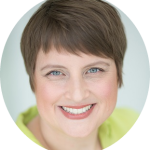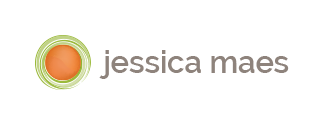An Analysis of Goal Setting in Education Administration
By Jessica Maes
Goal setting is one of the most popular and proven-to-work motivation tools, and it’s also the most misused tool in the motivational toolbox. Administered properly, the sky is the limit as evidenced by people like Entrepreneur Daymond John and Olympian Michael Phelps. Incorrect goal setting can result in no results, lack luster results, confusion, and at the extreme it can negatively impact a person’s confidence and motivation.
The Berkeley Heights Board of Education in Berkeley, New Jersey recently decided to take on the noble task of setting goals that better aligned with the Berkeley Heights School District’s 2024-2025 goals. The goals of the Board of Education are communication, planning, Chief School Administrator (CSA) evaluation, creating a board mission statement, establishing a training calendar, and setting up the framework to protect sensitive information while allowing the public to meeting access minutes and agendas (Brogowski, 2023a). The goals of the School District are communication, green initiatives, school safety, and student achievement (Brogowski, 2023b). An analysis of the science of effective goal setting may suggest adjustments that the Board of Education and the School District should consider so that both groups have the best chance at success in this endeavor.
The Science of Goal Setting
The most effective goal strategy will include a combination of outcome, performance, and process goals (Cox, 2012). If we look at the goal of “communication” that both groups have in common, there is an opportunity to create all three goal types within this broad topic:
- An outcome goal focuses on the result so a possible outcome goal could be: Improve communication with the employees in the school district by 50% by the end of the 2024-2025 school year.
- A performance goal focuses on doing something so a possible goal could be: Host a town hall meeting on Zoom every Wednesday at 7am so that employees of the school district have a consistent path for communication with the board/district.
- A process goal focuses on personal/physical development so a possible process goal could be: Board/District leadership will attend a quarterly workshop on fostering effective listening skills.
Overall, a widely recommended structure for setting a goal is to make the goal specific, measurable, action-oriented, realistic, and timely (Cox, 2012). This framework is also known by the acronym SMART.
A Study of Goal Setting in Education
A study involving 84 secondary school teachers setting achievement goals revealed that there was a correlation between the teacher’s personal achievement goals and the teacher’s specific instructional practices. Further, there was a correlation between the teacher’s personal goals and the student’s perceptions of goal structures (Daumiller et al., 2022).
Overall, this study showed strong evidence that goal setting is motivational (for the teachers and for the students) and this synergy could potentially occur within the board of education and school district groups in a similar way (motivating all individuals involved).
Conclusion
The 2024-2025 goals for the Berkeley Heights Board of Education and the Berkeley Heights School District, as reported, are too vague to evoke much motivation from anyone involved and the groups will be challenged to see much, if any results. While both groups are on the right path with setting goals, engaging with a performance consultant who has goal setting expertise would be an excellent next step in the process. Success with this initiative would go far and do much for any community, and Berkeley Heights has an excellent opportunity to be a model for successful cooperation and collaboration in education through goal setting.
References
Brogowski, D. (2023, October 16). Berkeley Heights School District Hires Busing Consultant; Anti-Bullying Strategy Unveiled. TAPintoBerkeley Heights. Retrieved November 9, 2023, from https://www.forbes.com/sites/davidcarlin/2020/01/10/why-olympic-athletes-are-smarter-than-you/?sh=29d0c2657384
Brogowski, D. (2023, November 5). Berkeley Heights School Board Revamps Goal-Setting Approach to Align with District’s 2024-2025 Goals. TAPintoBerkeley Heights. Retrieved November 9, 2023, from https://www.tapinto.net/towns/berkeley-heights/sections/education/articles/berkeley-heights-school-board-revamps-goal-setting-approach-to-align-with-district-s-2024-2025-goals
Carlin, D. (2020, January 10). Why Olympic Athletes Are Smarter Than You. Forbes. Retrieved November 9, 2023, from https://www.forbes.com/sites/davidcarlin/2020/01/10/why-olympic-athletes-are-smarter-than-you/?sh=29d0c2657384
Cox, R. H. (2012). Sport Psychology Concepts and Applications (7th ed.). McGraw-Hill.
Daumiller, M., Fasching, M. S., Steuer, G., Dresel, M., & Dickhäuser, O. (2022). From teachers’ personal achievement goals to students’ perceptions of classroom goal structures: Via student-oriented goals and specific instructional practices. Teaching and Teacher Education, 111, 1–14. https://doi-org.ezproxy.uwgb.edu/10.1016/j.tate.2021.103617
Locke, T. (2020, March 10). POWER PLAYERS Daymond John started writing down goals at age 16: ‘I actually became the man I thought I would be by 30’. CNBC. Retrieved November 9, 2023, from https://www.cnbc.com/2020/03/10/daymond-john-on-how-to-set-and-use-goals-to-achieve-success.html
 Jessica is a first-year master’s student in the Sport, Exercise, & Performance Psychology program at the University of Wisconsin – Green Bay. She earned a bachelor’s degree in English from the University of Wisconsin – Parkside and is currently a Writing Tutor at The Learning Center at UWGB. She is also certified as a grant writer from the University of Wisconsin – Eau Claire and from Learn Grant Writing. Connect with Jessica on LinkedIn.
Jessica is a first-year master’s student in the Sport, Exercise, & Performance Psychology program at the University of Wisconsin – Green Bay. She earned a bachelor’s degree in English from the University of Wisconsin – Parkside and is currently a Writing Tutor at The Learning Center at UWGB. She is also certified as a grant writer from the University of Wisconsin – Eau Claire and from Learn Grant Writing. Connect with Jessica on LinkedIn.
